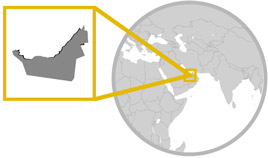Religion, tradition, culture, and the calendar play significant roles in shaping the identity of Uzbekistan. Let's explore each aspect:
Religion:
Uzbekistan is a religiously diverse country, with Islam being the dominant religion. The majority of Uzbeks practice Sunni Islam of the Hanafi school, which has been deeply rooted in the region for centuries. Islamic traditions and practices are an integral part of daily life, and many Uzbek families observe religious rituals and festivals. Alongside Islam, there are also small communities of Orthodox Christians, Jews, and other religious groups in Uzbekistan.
Tradition and Culture:
Uzbekistan boasts a rich and ancient cultural heritage that has been influenced by its location on the historical Silk Road and the convergence of various civilizations. Uzbek culture is characterized by a blend of Persian, Turkic, and Central Asian traditions. Traditional music, dance, and crafts, such as pottery and embroidery, play significant roles in the Uzbek cultural scene.
Hospitality is a central aspect of Uzbek culture, and guests are warmly welcomed with open arms and treated with great respect. Traditional clothing, such as colorful robes for men and beautifully embroidered dresses for women, showcases the country's unique fashion sense.
Uzbekistan is famous for its delicious cuisine, which includes dishes like pilaf (plov), shashlik (kebabs), and various types of bread, like non and patyr. Tea holds a special place in Uzbek culture, and it is often served in elaborate ceremonies to guests.
Calendar and Festivals:
The traditional Uzbek calendar is a combination of solar and lunar elements. However, the country uses the Gregorian calendar for official and business purposes. The Uzbek calendar is influenced by Islamic festivals, and some of the significant religious holidays celebrated in Uzbekistan include:
Eid al-Fitr (Oqil Oqil) - Celebrated at the end of Ramadan, marking the end of fasting.
Eid al-Adha (Qurban Hayit) - Celebrated on the 10th day of the Islamic month of Dhu al-Hijjah, commemorating the willingness of Ibrahim (Abraham) to sacrifice his son as an act of obedience to God.
Navruz (Nowruz) - The Persian New Year, celebrated on the vernal equinox, marks the beginning of spring and is a major cultural festival in Uzbekistan.
Independence Day (O'zbekiston Respublikasining Mustaqilligi) - Celebrated on September 1st, marking Uzbekistan's independence from the Soviet Union in 1991.
These festivals are marked by various traditions, music, dance performances, and delicious feasts, bringing communities together to celebrate their shared heritage.
In conclusion, Uzbekistan's religion, tradition, culture, and calendar are intertwined, reflecting the country's diverse and vibrant identity. By preserving its ancient customs and celebrating its cultural festivities, Uzbekistan continues to embrace its rich history and unique cultural tapestry.

